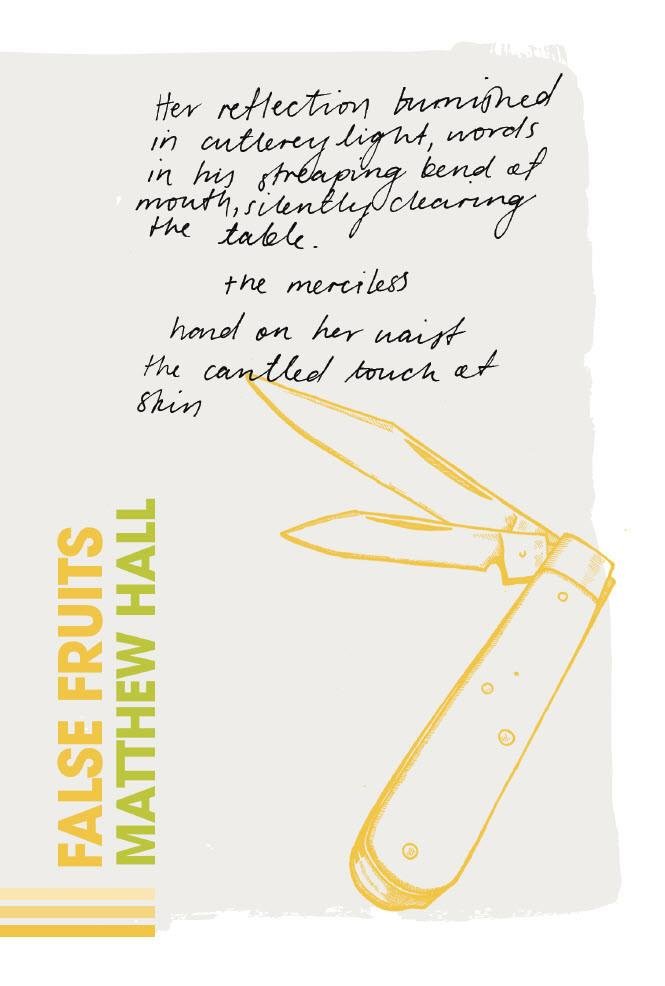False Fruits

In this cycle of post-lyrical poems, Matthew Hall questions the form and circumstances of these factors. What are they? A synecdoche of bodily presence and the signs of (an)other are wound together. A metaphor gives way to description but remains inseparable. Linguistically, there is slippage, but the image is concrete, materialising out of allusion to an earth-spiritual possibility. This is the settler moment, the lonely object in the lonely house in the lonely construct of settlement.
'This book was written over two hundred years. It was started as a colonial project. From there it developed through the use of the archive as a consideration of historical narrative. The poem employs a Susan Howe-esque archival practice that selectively disseminates Canadian short stories to think about erasure and failures of settlement: to disclose an underlying colonial reality of the pastoral, and measures of inclusion and exclusion. The poems are familial but underlying this is the glowering absence of the historic, a generative absence which exemplifies how early / prairie literature is culpable in driving a national myth which forgoes Indigenous life.
As a child I was fascinated with rope-braiding machines. Even before I could manage the handle, I could watch them for hours. I consider tension as a form of kinetic energy. Words from archives are interwoven, assembled to mimic this type of tension. These narratives are bound to the manner in which we write the histories of our nation. We are all of these stories, and they are none of us. This rope can be used to bind, or...' — Matthew Hall
